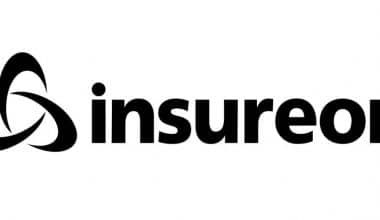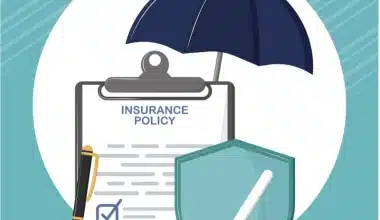When choosing the best business insurance providers in Pennsylvania, you need to consider multiple criteria. This includes their cost-effectiveness for LLCs and sole proprietors, customer satisfaction, financial stability, and the efficiency of their online quote processes.
To be fully protected, your Pennsylvania business should be equipped with a business insurance policy. With the coverage provided by business insurance, your company can stay afloat after what would’ve been a financially devastating disaster such as a fire or break-in. And while Pennsylvania is an attractive area for you as a business owner to set up shop for many reasons, you need to have the right protection in place first.
Fortunately, an independent insurance agent in Pennsylvania can help you find the right kind of business insurance policy for your company.
Pennsylvania business insurance requirements
In Pennsylvania, your business must carry workers’ compensation coverage, with very few exceptions. This coverage is mandated by state law for most businesses. Though other types of business insurance are optional in Pennsylvania, many companies greatly benefit from having business income insurance, which can provide reimbursement for typical revenue and employee payroll during covered closures.
Businesses may also want to consider getting commercial property insurance to protect company property, such as buildings or inventory, against theft and other disasters. Commercial auto insurance is also a good consideration for companies that have delivery vehicles.
Pennsylvania state law requires businesses to have workers’ comp, with very few exceptions. As a result, it is the only state-mandated type of business insurance.
However, businesses in Pennsylvania also get other types of insurance, which include:
- General liability insurance: A general liability policy is important for all Pennsylvania businesses for its protection against common third-party risks. Most commercial leases require this type of business liability insurance.
- Professional liability insurance: This policy, also called errors and omissions insurance (E&O), protects Pennsylvania businesses that provide professional services or advice. It covers lawsuits related to work performance.
- Commercial auto insurance: This policy is required for business-owned vehicles in Pennsylvania. It covers injuries and property damage in an accident, along with vehicle theft, vandalism, and weather damage.
- Errors and omissions insurance: E&O, sometimes called professional liability insurance, is common with professional services in Pennsylvania. It can cover the cost of lawsuits related to your work performance.
- Business owner’s policy: A BOP bundles commercial property insurance and general liability coverage in one plan. It’s often the most cost-effective type of commercial insurance for a Pennsylvania business.
- Cyber insurance: This policy covers financial losses from data breaches and cyberattacks. It’s recommended for Pennsylvania businesses that handle credit card numbers and other sensitive data.
- Commercial umbrella insurance: Umbrella insurance boosts coverage on your general liability insurance, commercial auto insurance, and employer’s liability insurance when the underlying policy reaches its limit.
- Commercial property insurance: This policy covers the value of a business’s physical structure and its contents, such as inventory, equipment, and furniture. You can bundle it with general liability coverage in a BOP for savings.
Best business insurance companies in Pennsylvania
Liberty Mutual
Liberty Mutual has a global reach and offers many business insurance solutions for individuals and businesses. It also offers commercial auto insurance, workers’ comp, homeowners insurance, and more. The carrier offers several discounts and reportedly has very affordable premium rates compared to other insurance companies.
The carrier is highly rated by AM Best and the BBB and has demonstrated solid financial strength over the years. Liberty Mutual provides an excellent experience in terms of user-friendliness, allowing customers to file claims 24/7 over the phone or online. It is a Fortune 500 company, further aiding its credibility. Finally, the carrier has many glowing customer reviews.
Liberty Mutual Insurance has been helping customers to safeguard their businesses and employees since 1912.
Progressive
Progressive is one of the best business insurance providers In Pennsylvania and sells many types of coverage along with business insurance. The insurance company also has outstanding financial strength ratings, many discounts, and offers 24/7/365 customer service.
Thanks to its extensive history in the insurance industry, large catalog of insurance products, and excellent ratings by AM Best, customers who shop for business insurance with Progressive can expect quality coverage and reliable customer service. Progressive also works with a network of more than 38,000 independent insurance agents nationwide to offer a more personalized experience for its customers.
The company makes itself highly accessible to its customers, and that combined with quality insurance products and outstanding service overall has led to it receiving several high ratings.
Progressive was founded in 1937, giving the carrier more than 80 years of experience in the insurance industry. Fifty years ago, it became the first insurance company to allow consumers to pay their premiums in installments, a huge milestone for the carrier.
Travelers
Thanks to the plethora of excellent discounts available across multiple types of insurance, customers can expect to have their business insurance coverage needs met at competitive rates through Travelers. Additionally, as a longstanding and well-established company with truly impressive financial strength, it’s safe to say that customers can trust this carrier with their hard-earned cash.
Travelers sells its products through a massive network of independent insurance agents, who offer a more personalized experience for customers. When it comes to insurance, nothing is more important than quality coverage offered by a guaranteed, secure and reputable company, and Travelers fits the bill beautifully.
Travelers offers a wide variety of insurance products sold through a massive network of independent insurance agents.
Nationwide
Nationwide is one of the best business insurance providers In Pennsylvania. It has been around for more than 90 years now, which is remarkable within the insurance industry. And the carrier has used this time to its advantage. Nationwide has received high ratings through AM Best and the BBB, and they are accredited through the latter organization. Coverage is offered in 47 states, and their catalog is quite extensive.
The insurance company provides 24/7 claims reporting via phone, online, or mobile app, as well as online bill pay.
Nationwide offers both personal and business insurance. The carrier’s business insurance catalog includes the following products:
- Business Owners Policy (BOP)
- Business Auto
- Business property
- General liability
- Workers’ compensation
- Farm & ranch
- Commercial agribusiness
biBERK
biBERK is one of the best business insurance providers in Pennsylvania and the top pick for sole proprietors in Pennsylvania. It offers average monthly premiums at a budget-friendly rate of $23, ensuring that sole proprietors can secure essential business protection without straining their finances. With an outstanding A++ financial strength rating, biBERK showcases its robust financial stability and capability to fulfill policyholders’ requirements.
This insurer also demonstrates its commitment to customer satisfaction by receiving fewer complaints than the industry average. However, obtaining an online quote from biBERK may take a bit longer, with an average response time of around two minutes and 20 seconds.
Cost of business insurance in Pennsylvania
Business insurance policies in Pennsylvania are not standard, and neither are their premiums. If your business needs more coverage in larger amounts, you’ll pay more for your coverage. Also, if your business is in a riskier industry by nature, such as construction, you can expect to pay more for your coverage.
Basically, the larger your business is, the more coverage it needs, and the riskier its operations are, the more the business insurance policy will cost. Rates are generally factored using:
- The gross sales for the business
- The gross payroll for employees and owners
- The square footage of the premises and
- Any sub-contractor exposures (if applicable). Insurance rates are developed at a rate per $1,000 utilizing one or more of the above factors.
A typical small business in Pennsylvania can expect to pay anywhere between $300 and $5,000 annually for their business insurance policy. The final cost of coverage from one business to the next will vary significantly based on the SIC code or the insurance company’s own classification system for GL rating.
Some additional factors used to develop insurance costs include the nature of your business, your physical location, prior claims experience, and your years in business.
Factors that affect business insurance costs in Pennsylvania
Multiple factors come into play when determining a business’s general liability insurance cost, including:
- Policy limits: Opting for higher policy limits typically results in increased premiums since they provide enhanced financial protection for the business.
- Number of employees and payroll costs: Businesses with a larger workforce or higher payroll costs are often associated with increased risk exposure, resulting in higher insurance rates. Our data revealed that LLCs with 20 employees in Pennsylvania pay an average of $115 more per month than sole proprietors.
- Business location: Companies in regions prone to natural disasters or areas with elevated crime rates may encounter higher insurance premiums than those in low-risk areas. This variation in risk exposure is why statewide premium averages differ from city-level averages.
- Claims history: Insurance providers tend to view businesses with a history of frequent or costly claims as higher risks. As a result, these businesses may experience an increase in their insurance premiums.
- Industry: Certain industries, such as construction or healthcare, inherently carry higher risks compared to other sectors. Consequently, businesses in these industries may face higher premiums, while those in industries with lower risk profiles could benefit from lower insurance premiums.
What does business insurance cover in Pennsylvania?
Every business insurance policy in Pennsylvania can be customized to meet your needs. So, policies aren’t standard, meaning the coverage they provide varies depending on what you select.
You might want several more coverages in addition to workers’ comp, even if they aren’t technically mandatory. Your business insurance policy might be complete for your specific company once it has workers’ comp, business income coverage, commercial auto coverage, commercial general liability coverage, and commercial property coverage, while other businesses will require more or less coverage.
A Pennsylvania independent insurance agent can help recommend the exact coverage options your business would benefit from the most.
Do you need general liability insurance in Pennsylvania?
Pennsylvania state law does not require businesses to purchase general liability insurance, though it’s strongly recommended as an essential form of business insurance. This coverage provides vital protection against potential lawsuits and claims that could arise. While the state does not impose a requirement, certain industries and contracts may necessitate the presence of general liability coverage.
The state of Pennsylvania does mandate that businesses with one or more employees have workers’ compensation insurance, except for executive officers and domestic employees. This essential coverage guarantees that employees are protected in the event of work-related illnesses or injuries.
Recommended Articles
- Small Business Insurance: What Is It & How Does It Work?
- Business Insurance For LLC: What It Is & Best Options
- How Much Does Business Insurance Cost?






